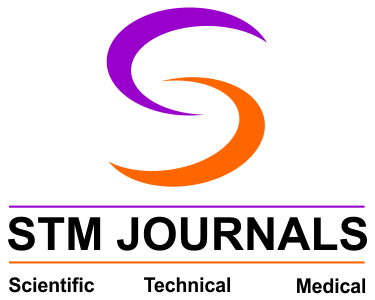About the Journal
The National Journal of Labour and Industrial Law [2583-6498 (e)] is a peer-reviewed hybrid open-access journal launched in 2018, dedicated to Labour Law, also known as Employment Law. The journal focuses on the body of laws, administrative rulings, and precedents that govern the legal rights and restrictions on working individuals and their organizations. It plays a pivotal role in mediating the relationships between trade unions, employers, and employees, defining the rights and obligations of all parties in the workplace.
Focus and Scope
- Labour Law in India: Comprehensive coverage of labour law and industrial relations in India, Exploration of key legislations, including the Contract Labour Regulation and Abolition Act, addressing issues such as collusive agreements, optimal strategies, and the role of labor inspectors.
- Important Case Laws under Various Labour Legislations: Analysis of significant case laws under various labor legislations, offering insights into the history of labor rights, administrative control, and factors influencing legal compositions.
- Special Points in Employment Agreements: In-depth examination of employment agreements, emphasizing the freedom of will, contract terms, and the rights and responsibilities of both employers and employees.
- Industrial Relations: Study of channel relationships, business-to-business marketing, and factors influencing industrial marketing, Exploration of relationships, trust, loyalty, and performance in the industrial sector.
- Women Labour and the Law: Analysis of legal aspects related to women’s pay, status, and rights in the workforce, Examination of gender-based economic disparities, education, and human resource development in the labor market.
- Labour Laws in the Unorganized Sector: Focus on upliftment and protection of labor in the unorganized sector, Exploration of laws and legislations addressing issues such as minimum wages, occupational safety, and vulnerabilities in the unorganized sector.
- Unfair Labour Practice: Analysis of unfair labor practices, constitutionalism, and legal aspects related to fairness in labor acts and trade unions.
- Checklist of Labour Law Compliance: Examination of essential elements of labor law compliance, including collective bargaining, factory management, and audit procedures.
- Apprentices Act 1961: In-depth analysis of the Apprentices Act 1961, focusing on apprenticeship, training effectiveness, and skill development.
- Maternity Benefit Act, 1961: Comprehensive coverage of the Maternity Benefit Act, 1961, including recent amendments, maternity leave, childcare, and its impact on women in the workforce.
- Law Related to Contract Labor: Exploration of development challenges, labor policies, and regulations related to contract labor, Analysis of manpower policies, promotions, and career development in the context of contract labor.
- Laws Related to Child Labor: Examination of legal frameworks addressing child labor, including international perspectives and approaches, Analysis of effectiveness and shortcomings in national and international laws protecting children from labor exploitation.
- Laws Related to Wages: Focus on labor laws related to wages, minimum wages, bonus, and equal remuneration, Exploration of economic analysis, labor reforms, and their impact on wages.
- Shops and Establishment Act, 1954: Exploration of urban sustainability and cultural heritage in the context of the Shops and Establishment Act, 1954.
- Workmen’s Compensation Act 1923: Analysis of compensation policies, employee satisfaction, and the impact of the Workmen’s Compensation Act 1923 on the aquaculture industry.
- Payment of Gratuity Act, 1972: Examination of social inclusion, inclusive growth, and the legislative impact of the Payment of Gratuity Act, 1972, on various sectors.
- Payment of Bonus Act, 1965: Analysis of bonus-related laws, ILO perspectives, and the role of labor welfare in ensuring rationalized wages.
- Labour Laws (Exemption From Furnishing Returns & Maintaining Registers By Certain Establishments) Act, 1988: Examination of economic reforms, labor laws, and e-Governance in the context of the Labor Laws (Exemption) Act, 1988.
- Industrial Disputes Act, 1947: Comprehensive analysis of industrial disputes, dispute resolution mechanisms, and the impact of the Industrial Disputes Act, 1947, on employee relations.
- Factories Act, 1948: Exploration of worker rights, safety provisions, and the impact of the Factories Act, 1948, on labor markets.
- The Employment Exchanges (Compulsory Notification of Vacancies) Act, 1959: In-depth analysis of labor force and employment, exploring the impact of the Employment Exchanges Act on registration, placement, and disability inclusion.
- Employees Provident Fund And Miscellaneous Provisions Act, 1952: Examination of social security, employee welfare, and the legislative impact of the Employees Provident Fund Act on organizational dynamics and productivity.
The National Journal of Labour and Industrial Law invites scholarly contributions that align with its focus and scope, contributing to the advancement of knowledge in the field of labour and industrial law.




